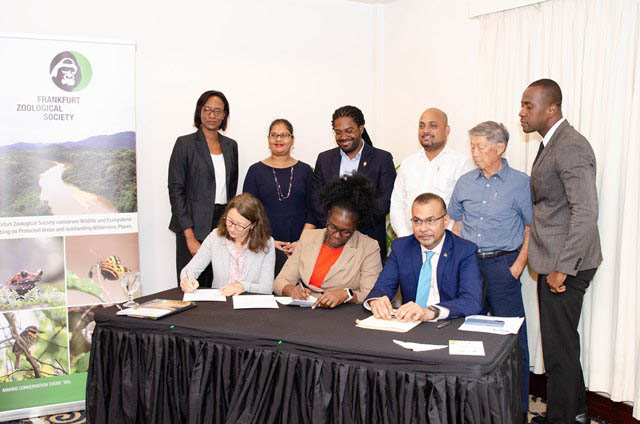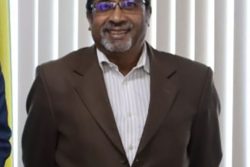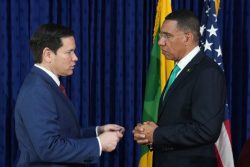The Government of Guy-ana on Wednesday signed a Memorandum of Under-standing (MoU) for cooperation with the Frankfurt Zoological Society (FZS), an internationally operating nature-based organisation.
The FZS, which was founded in 1858, has been supporting conservation projects in Africa, Central and South America, South-east Asia and Europe for many decades, according to a statement issued by the Protected Area Commission (PAC).
At the signing, it said, Robert Persaud, Foreign Secretary and the Chair of the Protected Areas Com-mission Board, highlighted that the Government of Guyana is committed to protecting and managing all natural patrimony to not only bequeath it for the future generations but to ensure that the social and economic needs of Guyanese are met in the present.
“The strides taken by the government particularly in the recent issuance of carbon credits and the subsequent sale of credits amounting to US $750 million is also testimony that the government executes its plans for the benefit of the people of Guyana,” he said.
According to Persaud, the partnership with FZS underscores the government’s commitment to the LCDS 2030 and the conservation of biodiversity in Guyana.
In 2014, FZS started collaborating with the PAC and has played a key role in the areas of system-wide strategic planning, capacity development, and improv-ed management of the Kanuku Mountains Pro-tected Area (KMPA).
“This new MOU, which covers a five-year period, will see the expansion of FZS’s cooperation in Guyana within the context of the LCDS 2030. It will allow FZS to establish and operate a Country Office in Guyana, support the expansion of the NPAS [National Protected Areas System], continue its collaboration with the PAC for strengthened management of the KMPA and the NPAS, foster indigenous community engagement and development, and support Guyana to advance participation in key global biodiversity and climate-related initiatives,” he said.
Dr. Antje Müllner, Head of the South America and Southeast Asia Department at FZS, commented that it is important to coordinate an approach of several institutions and the relevant local stakeholders to tackle the threats to biodiversity.
“Both the problems as well as the possible solutions to the crisis are often complex. We need all hands on deck to jointly work on that from multiple angles,” Müllner said, while noting that FZS will support the government in achieving its LCDS goals.









